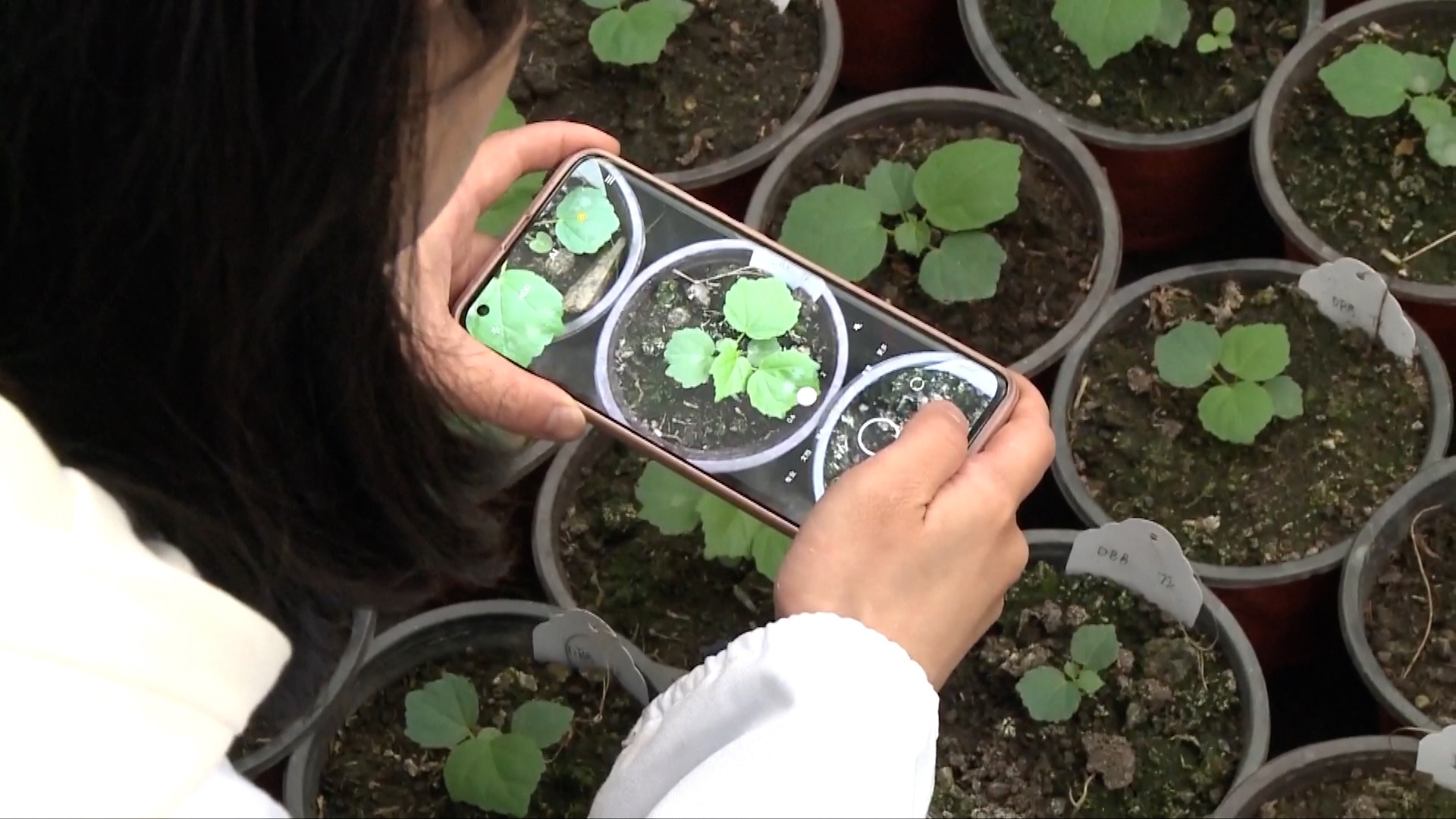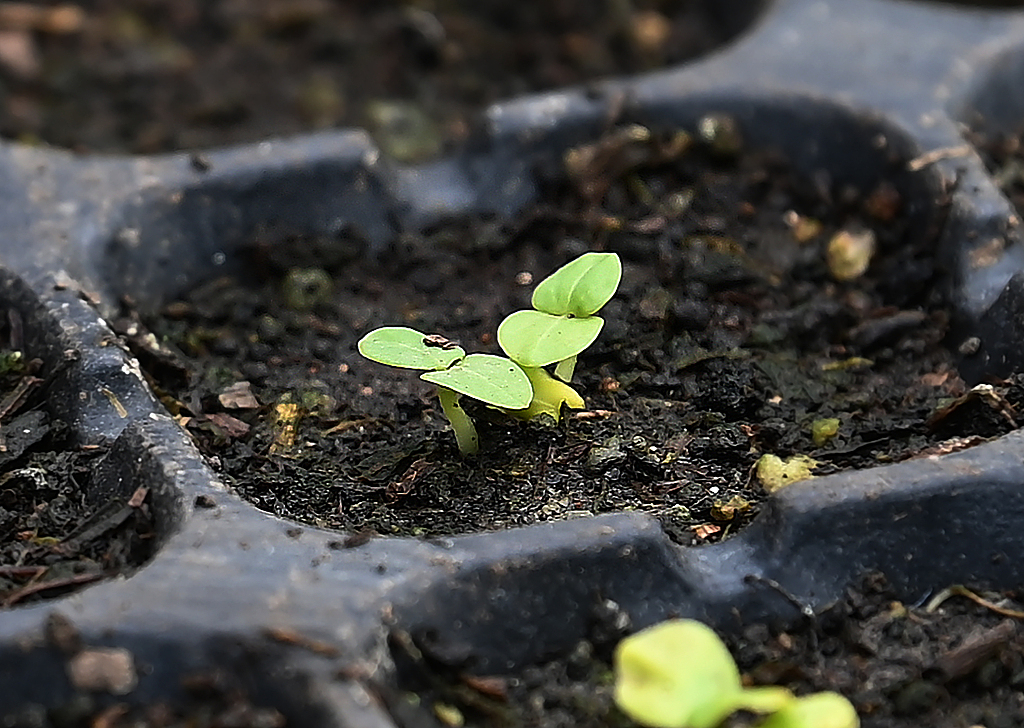00:50

Over 4,000 hibiscus seeds with four new varieties, which were taken to space by the Shenzhou-14 and Shenzhou-15 manned spaceships, were brought back at the end of 2022. Researchers at the Chengdu Botanical Garden in southwest China's Sichuan Province planted these seeds in the soil on March 9.
And surprisingly, the seeds began sprouting on March 16. "As expected, the hibiscus seeds exposed to cosmic radiation germinated earlier than the ordinary seeds," Shi Xiaoqing from Chengdu Botanical Garden told local media in an interview.

The growing seedlings of the space seeds, March 22, 2023 /CFP
The growing seedlings of the space seeds, March 22, 2023 /CFP
Tang Shengwen, a landscape engineer of the research nursery, said these seeds are very special.
"Taking cotton rose hibiscus as an example, this is the first time we have tried the cultivation of new varieties through space seed breeding technology," Tang said.
Hibiscus is the city flower of Chengdu. The researchers predicted that the first batch of flowers would grow from these space seeds this October.
"We want the new varieties to be different from previous varieties. The new varieties are expected to present new colors, have higher flower count and stronger resistance to pests and diseases," Tang said.
Space seeds sprouting on Earth after a long-duration space journey have opened up more possibilities for promoting greater progress in biodiversity conservation.
With the progress of the space industry, more seeds will be brought to space to create a "space oasis" in the future, which may offer new solutions for global agricultural development, biodiversity protection, as well as for climate change.
(Cover image is a screenshot.)
(If you want to contribute and have specific expertise, please contact us at nature@cgtn.com.)